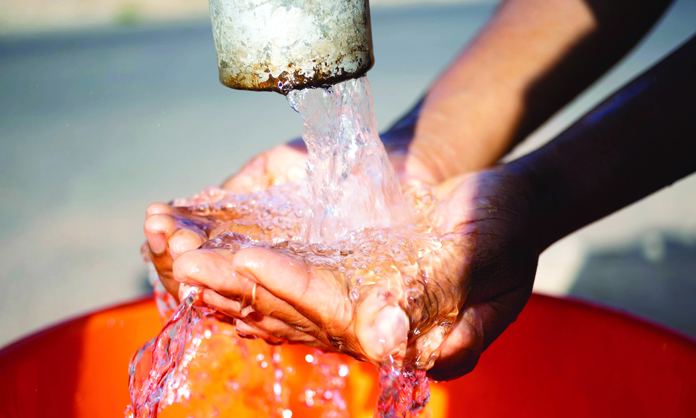Minister of agriculture, water and land reform Calle Schlettwein this week said there was a need to speed up the construction of the envisioned second desalination plant to better manage the country’s water resources.
He was speaking at a week-long ministerial strategic and annual planning workshop at Swakop- mund.
“The only one solution that there is which is very reliable is desalinisation. The ocean is an almost limitless supply of water. Our job would be to create the nec- essary infrastructure to make that water drinkable and then to bring that water to where it is needed,” Schlettwein said.
In this context, desalination has the potential to become the most important and reliable water source in the future.
He said procurement and public- private partnerships should be finalised this year to ensure a bankable proposal by the end of the year. He urged all stakeholders to engage and reprioritise efforts, as construction must start as soon as possible to address the rapidly growing water demand.
Desalination efforts should be extended to inland as well, Schlett- wein said, as reliable alternative water resources will come under strain and need to be supplemented. This would require the full imple- mentation of a totally integrated water supply system, allowing for water delivery to any and every consumer.
Additionally, Schlettwein called for the implementation of the water
sector support programme and re- lated projects under the ambit of the Community Committee of Water Supply Security. This would focus on the contribution and expansion of water purification plants and water distribution infrastructure across the country.
Questions have, however, been raised regarding the need for another desalination plant, given the existence and potential of the Erongo Desalination Plant (EDP), operated by Orano Mining Namibia.
According to Orano Mining’s managing director Tommie Gouws, EDP has the capacity to produce 20 million cubic metres of water per year, with the existing infra- structure allowing for expansion up to 25 million cubic metres and the potential to further expand to 45 million cubic metres.
Gouws recently said even with upcoming projects and potential new mines, EDP can still meet the region’s water needs until at least 2030 within its current capacity.
“This untapped capacity ensures
that EDP can comfortably supply water to the region and its indus- tries in both the medium and long term,” he said.
There have been suggestions for the need for further dialogue and exploration of existing resources before committing to construct- ing a new desalination plant, as EDP’s untapped capacity could potentially be leveraged to address the region’s water needs.
SOURCING FUNDS
In light of Schlettwein’s empha- sis on the need for constructing a new desalination plant, Cabinet approved a proposal for NamWater to seek loans to fund the construc- tion of a desalination plant that would provide water to the coastal and central regions of the country, including Windhoek.
The government is also consider- ing partnering with Botswana to supply water to the drought-prone neighbouring country.
The project’s feasibility study was already discussed and could cost in excess of N$3,5 billion. The proposed project would be implemented in phases under a public-private partnership model of “funding, design, build, operate, and transfer” over two to five years.
The Cabinet directed NamWater to approach international and local development banks, collaboration partners, and uranium mines to source funding for the project and enter into agreements.
Additionally, the Ministry of Finance and Public Enterprises, in consultation with NamWater, was instructed to proceed with the ongo- ing PPP screening for the project.
Stay informed with The Namibian – your source for credible journalism. Get in-depth reporting and opinions for
only N$85 a month. Invest in journalism, invest in democracy –
Subscribe Now!






